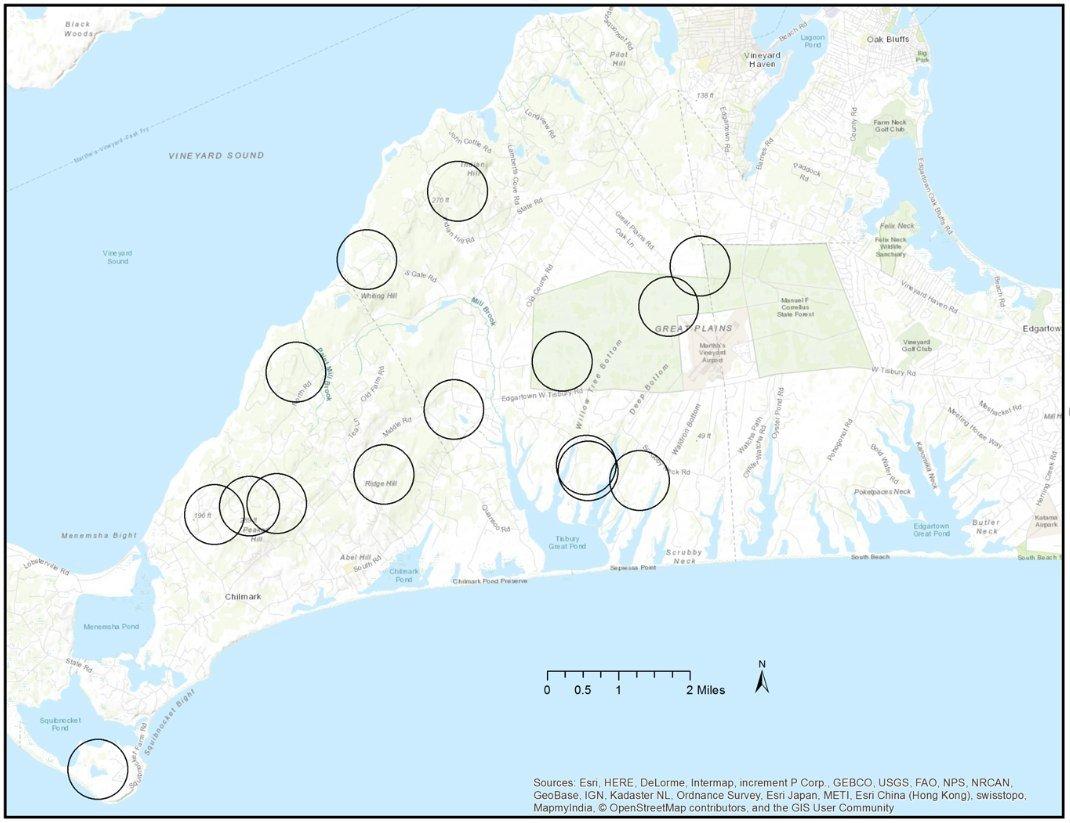Multiple young whitetails, mostly button bucks, have been found, prompting investigation from state agencies and universities
In November of 2019, paralyzed whitetail fawns were found in multiple locations on Martha's Vineyard in Massachusetts, prompting an investigation from area agencies and universities. From early November to mid-December 2019, MassWildlife received reports of deer displaying signs of paralysis in West Tisbury and Chilmark on Martha's Vineyard. Six affected deer, all button bucks, were euthanized, says MassWildlife Deer & Moose Project Leader David Stainbrook. Later in December, MassWildlife received six additional reports of paralyzed young deer on Martha's Vineyard, most of which were from deer seen weeks before, so fresh carcasses could not be collected for testing.
In late March, three more reports trickled in of young deer exhibiting signs of paralysis. MassWildlife was able to collect one of those deer for testing. Officials from five different state and regional agencies and colleges teamed up to tackle this eye-opening problem. Based on a MassWildlife press release, while tests and necropsies of the original carcasses did not reveal a conclusive diagnosis, the latest results at least ruled out certain possibilities from consideration.
Testing determined that trauma (such as spinal cord damage) wasn't the cause. Biologists also discarded tick-borne diseases since black-legged and winter ticks rarely cause this symptom. Certain infectious diseases were omitted, including Chronic Wasting Disease (CWD), Eastern Equine Encephalitis (EEE), Epizootic Hemorrhagic Disease (EHD), Leptospirosis, Listeriosis and Rabies. Researchers even ruled out certain toxins, such as drugs, environmental contaminants, Glyphosate poisoning, pesticides, selenium toxicity and toxic plants (inkberry and holly).
MassWildlife is still investigating and continues to consider other explanations or potential sources of harm, Stainbrook said. For example, deer may have fed on nutritional or medicated livestock and poultry supplements or starters purposely left on the land for them to eat. Many people are unaware that these products can be harmful to deer. Any information shared regarding these or other possible contaminant sources would be helpful in MassWildlife's continued interest in determining the cause of the paralysis.
The agency encourages people not to feed deer, and cites several ways feeding can harm deer, especially if those supplying it don't know what they're doing. Like cattle, deer are ruminants, but dedicated livestock feed — especially for poultry, hogs, horses and even cattle — are generally bad for deer.
Officials advise against eating meat from deer that express disease or paralysis. If you see deer behaving oddly, or signs of paralysis, please contact the agency at (508) 389-6300 or [email protected].









